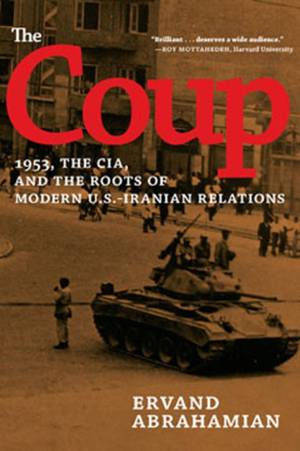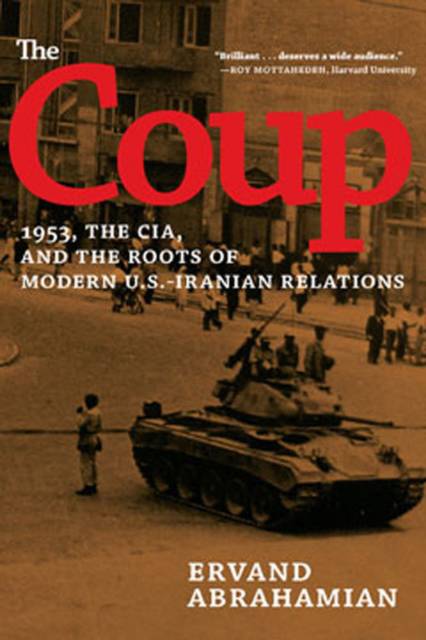
- Afhalen na 1 uur in een winkel met voorraad
- Gratis thuislevering in België vanaf € 30
- Ruim aanbod met 7 miljoen producten
- Afhalen na 1 uur in een winkel met voorraad
- Gratis thuislevering in België vanaf € 30
- Ruim aanbod met 7 miljoen producten
Zoeken
The Coup
1953, the Cia, and the Roots of Modern U.S.-Iranian Relations
Ervand Abrahamian
Paperback | Engels
€ 20,95
+ 41 punten
Uitvoering
Omschrijving
In August 1953, the CIA orchestrated the swift overthrow of Iran's democratically elected leader and installed Muhammad Reza Shah Pahlavi in his place. Over the next twenty-six years, the United States backed the unpopular, authoritarian shah and his secret police; in exchange, it reaped a huge share of Iran's oil wealth. The blowback was inevitable, as this "relevant, readable" (Kirkus Reviews) history by noted Iran scholar Ervand Abrahamian shows. When the 1979 Iranian Revolution deposed the shah and replaced his puppet government with a radical Islamic republic under Ayatollah Ruhollah Khomeini, the shift reverberated throughout the Middle East and the world, casting a long, dark shadow over U.S.-Iran relations that extends to the present day. In this "well-documented account [that] will become indispensable reading for students of the modern Middle East" (Choice), Abrahamian uncovers little-known documents that challenge conventional interpretations of the coup. Offering "new insights into his history-shattering event" (Reason.com), his riveting account transforms America's understanding of a crucial turning point in modern U.S.-Iran relations.
Specificaties
Betrokkenen
- Auteur(s):
- Uitgeverij:
Inhoud
- Aantal bladzijden:
- 304
- Taal:
- Engels
Eigenschappen
- Productcode (EAN):
- 9781620970867
- Verschijningsdatum:
- 7/07/2015
- Uitvoering:
- Paperback
- Formaat:
- Trade paperback (VS)
- Afmetingen:
- 137 mm x 208 mm
- Gewicht:
- 340 g

Alleen bij Standaard Boekhandel
+ 41 punten op je klantenkaart van Standaard Boekhandel
Beoordelingen
We publiceren alleen reviews die voldoen aan de voorwaarden voor reviews. Bekijk onze voorwaarden voor reviews.











